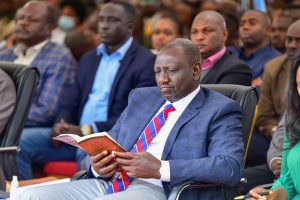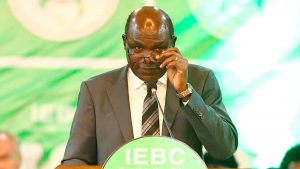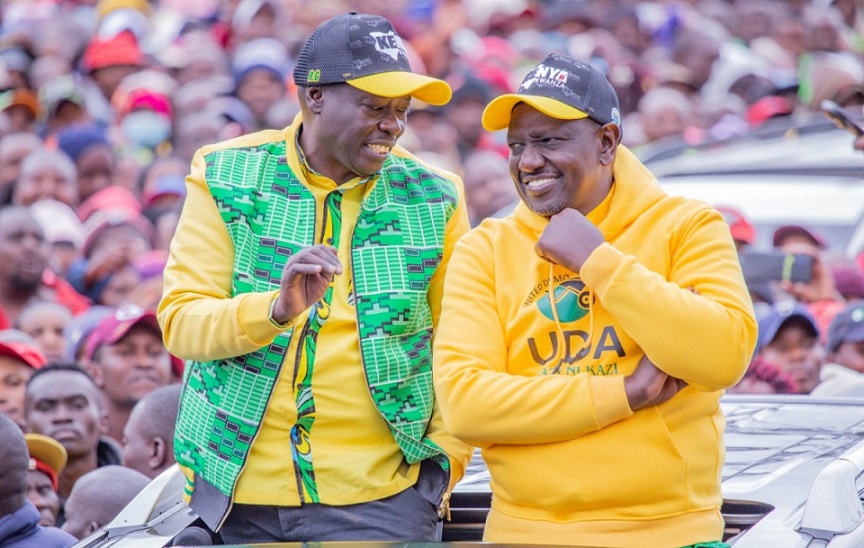The Supreme Court of Kenya on Monday, September 5, ruled that Deputy President William Ruto and his deputy Rigathi Gachagua were validly elected as the fifth president of the Republic of Kenya.
While delivering the judgment, the seven-judge bench validated the results announced by the Independent Electoral and Boundaries Commission – IEBC Chairman Wafula Chebukati.
According to the judgment, Ruto met the constitutional threshold of 50 per cent +1 of the total valid votes cast and garnered 25 percent of the votes cast in at least 24 counties.

President-elect William Ruto attending a prayer service at Nakuru, September 4
“We declare the election of the first respondent as valid,” Koomem the Supreme Court president, stated.
“It is our finding that the declared President-elect attained 50 per cent plus one of the of the votes cast in accordance to the Constitution,” Koome noted.
In addition, the seven-judge bench ruled that IEBC conducted the verification and tallying of the votes before announcing the final results.

Chief Justice Martha Koome
“We take cognizance of the fact that the fourth, fifth sixth, and seventh respondents actively participated in the verification and tallying exercise from the beginning until just before the declaration of results to nullify an election,” stated the Chief Justice.
The court further threw out allegations by chief petitioner Raila Odinga that the forms 34A on the Commission’s portal were dissimilar to those sent from the polling stations
According to judges, the postponement of the elections in Kakamega and Mombasa counties, Kitui Rural, Kacheliba Rongai and Pokot South Constituencies did not cause voter suppression and therefore did not affect the outcome of the presidential race.
The apex court also ruled that the discrepancies between the presidential votes and those cast in other elective seats were accounted for with IEBC explaining that prisoners and Kenyans in the diaspora only voted for the head of state.
“IEBC has offered a plausible explanation for the vote differential citing categories of voters who only voted for the president such as voters and Kenyans in the diaspora.

IEBC Chair Wafula Chebukati at the Bomas of Kenya
“There was an insignificant number of stray votes, whose combined effects cannot justify the nullification of the election,” the President of the Supreme Court stated.
Consequently, all the irregularities raised by the eight petitioners, whose cases were consolidated into one did not have the magnitude to affect the final result of the vote.
Furthermore, the highest court in the land sided with Chebukati and IEBC, stating that the technology deployed during the exercise met the standards of integrity, verifiability, security and transparency to guarantee accurate and verifiable results.
The president-elect will be sworn into office on or before Tuesday, September 13, 2022.



